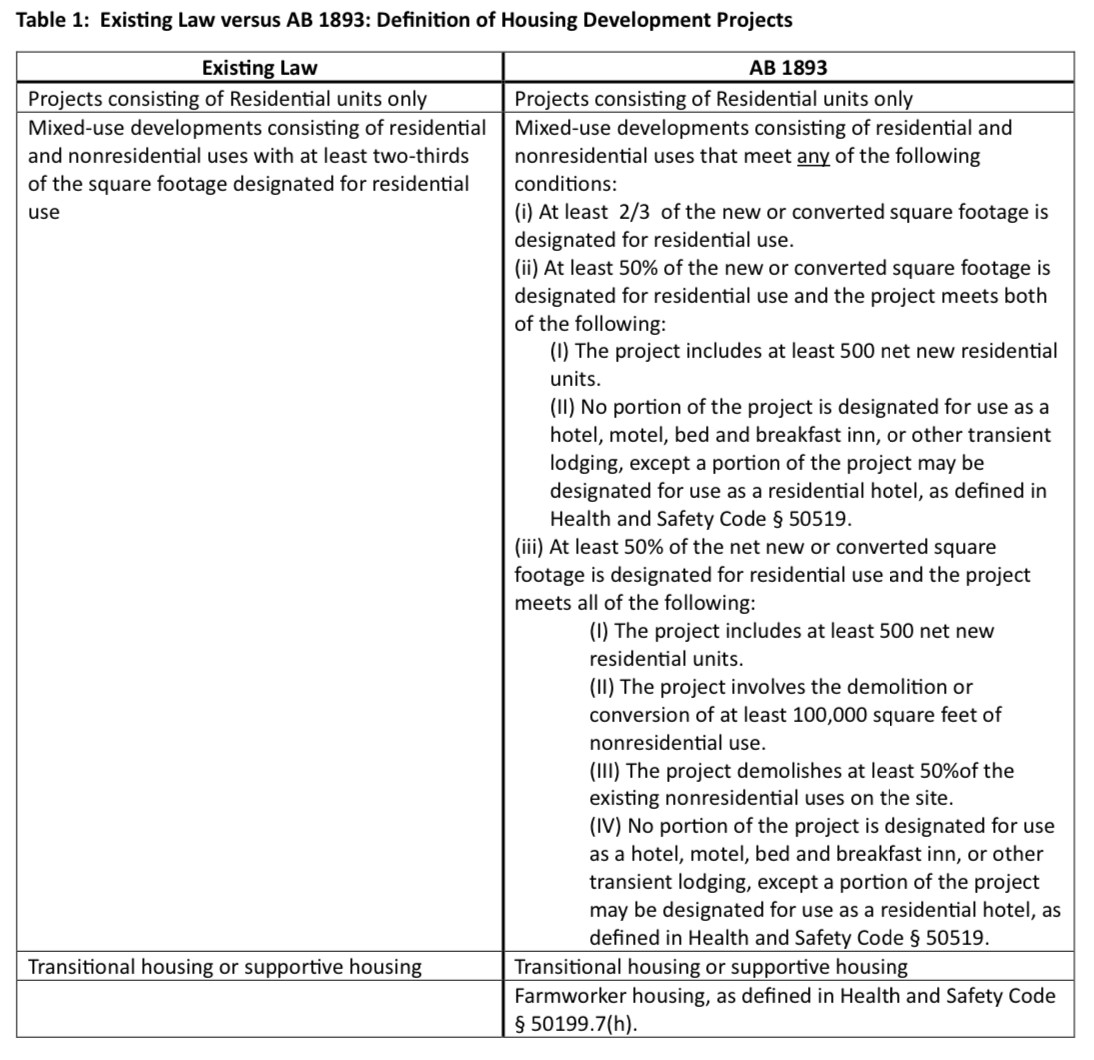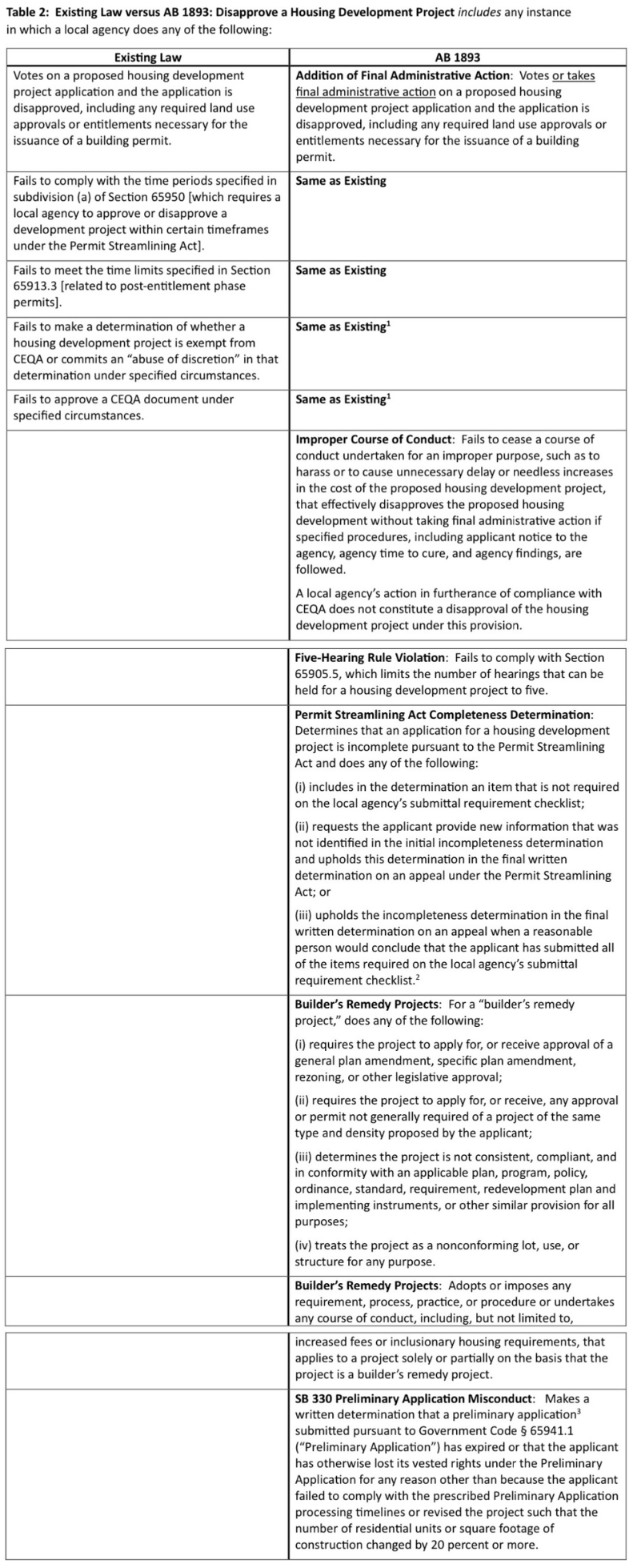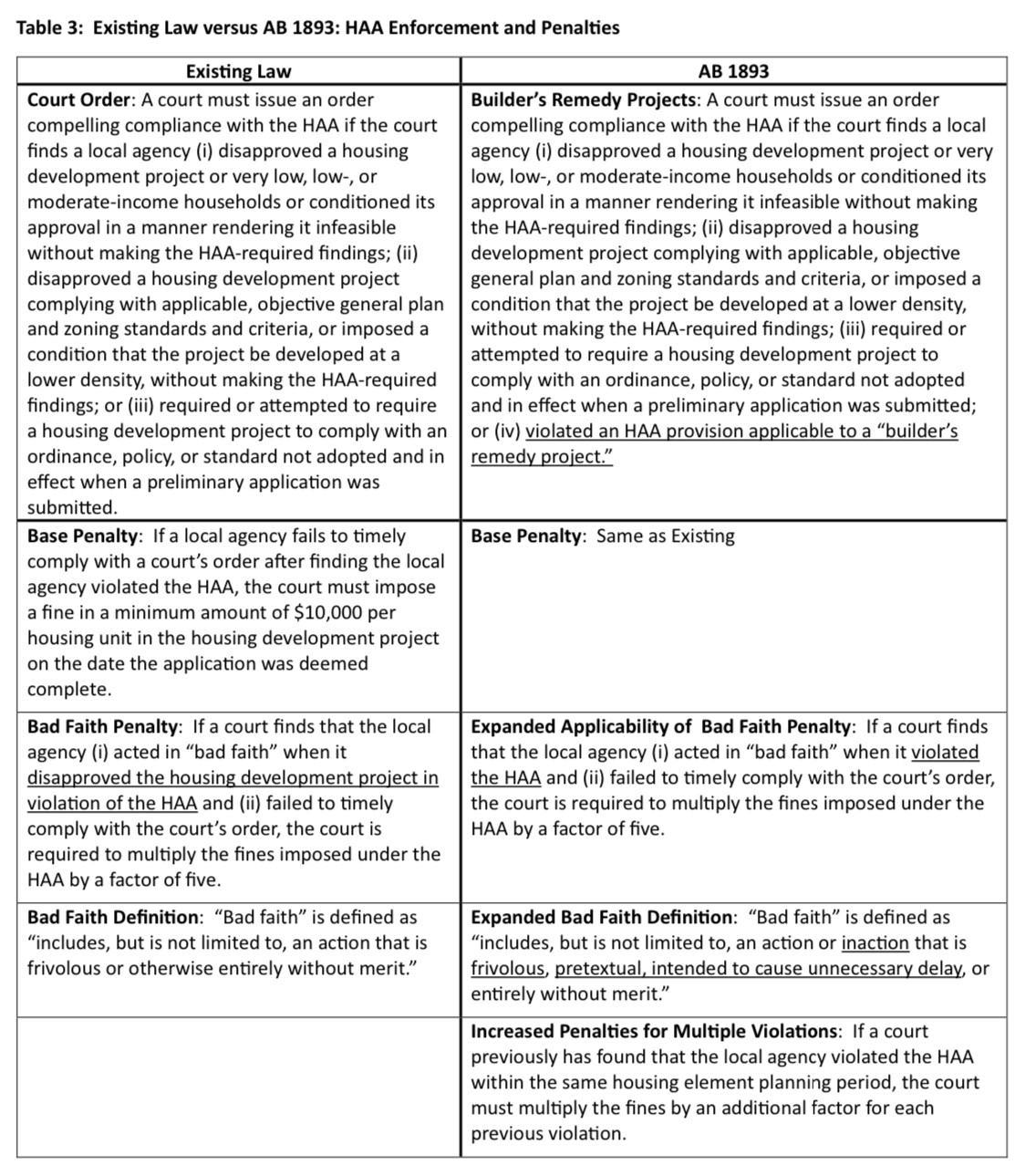AB 1893 Expands the Housing Accountability Act’s Protections
On September 19, 2024, the Governor signed a suite of housing bills, including AB 1893, which clarifies and expands the protections afforded to housing development projects by the Housing Accountability Act (“HAA”). AB 1893 takes effect January 1, 2025. In a prior client alert, we detailed how AB 1893 overhauled the Builder’s Remedy provisions of the HAA. See Governor Signs Controversial Legislation Providing New Rules for Builder’s Remedy Projects. In this alert, we focus on AB 1893’s other amendments to the HAA that apply to all housing development projects. These changes reflect the Legislature’s continued efforts to deploy the HAA as “strong medicine” against California’s chronic housing crisis.
Broadens the Definition of “Housing Development Project”
To access the protections of the HAA, a project must qualify as a “housing development project.” AB 1893 expands this definition, as summarized in Table 1 below. As a result of this expansion, the HAA’s protections will apply to a wider range of projects.

Broadens the Definition of “Disapprove the Housing Development Project”
A local agency violates the HAA if it disapproves a housing development project without complying with the HAA’s provisions. Unlike most other laws applicable to public agencies, a local agency can be subject to fines and liable for paying the petitioners’ attorneys’ fees if a court concludes that the agency violated the HAA.
Under existing law, the HAA’s definition of “disapprove the housing development project” expressly applies to only a few specific local agency actions (though courts have interpreted the term more broadly based on the word “includes” in the definition and the purpose of the HAA to promote the approval and provision of housing). AB 1893 expands the express list of local agency actions that constitute disapproval of a housing development project, as summarized in Table 2. As amended, a local agency’s violation of the Permit Streamlining Act or the five-hearing rule in Government Code section 65905.5 also is an HAA violation, adding “teeth” to laws that, unlike the HAA, do not carry the threat of monetary penalties.

[1] AB 1413 relocates these provisions (added last year by AB 1633) to new Government Code § 65589.5.1 (CEQA exemptions) and § 65589.5.2 (CEQA documents). These changes, however, are considered to be restatements and continuations of existing law, and not new enactments. For our prior alert on AB 1633, see AB 1633: CEQA Reform by Leveraging the Housing Accountability Act.
[2] The local agency bears the burden of proof that the required item is listed on the submittal requirement checklist or that the required item was identified in the initial determination. If a local agency determines that an application is incomplete under the Permit Streamlining Act after two resubmittals of the application by the applicant, the local agency bears the burden of establishing that the determination is not an effective disapproval of a housing development project.
[3] AB 1893 also clarifies that the local agency bears the burden of proof in establishing that an applicant’s Preliminary Application is incomplete.
Broadens Enforcement and Penalties
Even after a court holding that local agency violated the HAA, some agencies have continued to act in bad faith, resisting compliance with the court’s order and/or continuing to violate the HAA in relation to processing of the same or other housing development projects. To address persistent noncompliance, AB 1893 strengthens the enforcement mechanisms and increases the penalties available under the HAA, ensuring that local agencies face more significant consequences for continued failure to comply with the HAA. These amendments are summarized in Table 3, below.

Additionally, AB 1893 clarifies that nothing in the HAA limits the court’s inherent authority to make any other orders to compel the immediate enforcement of any writ brought to enforce the HAA, including the imposition of fees and other sanctions set forth under California Code of Civil Procedure § 1097, which, under certain circumstances, authorizes the court to impose a fine (separate from that authorized under the HAA) as well as order imprisonment until the writ is obeyed.
Conclusion
While the HAA’s Builder’s Remedy provisions have captured most of the attention surrounding AB 1893, AB 1893’s generally applicable amendments to the HAA likely will have a broader positive effect on housing production. These changes expand the HAA’s protections to more projects, expand the actions that constitute improper disapproval of a project, and increase the penalties local agencies will suffer for HAA violations. In 2021, a court found that the HAA was the “strong medicine” needed to heal California’s housing crisis. In the face of the continuing crisis, the Legislature, through AB 1893, has increased the strength of the HAA’s medicine, making it a more potent cure to housing delay and denial.
Please contact an author of this alert or any member of the Cox Castle Land Use & Natural Resource Team if you have questions about AB 1893.

